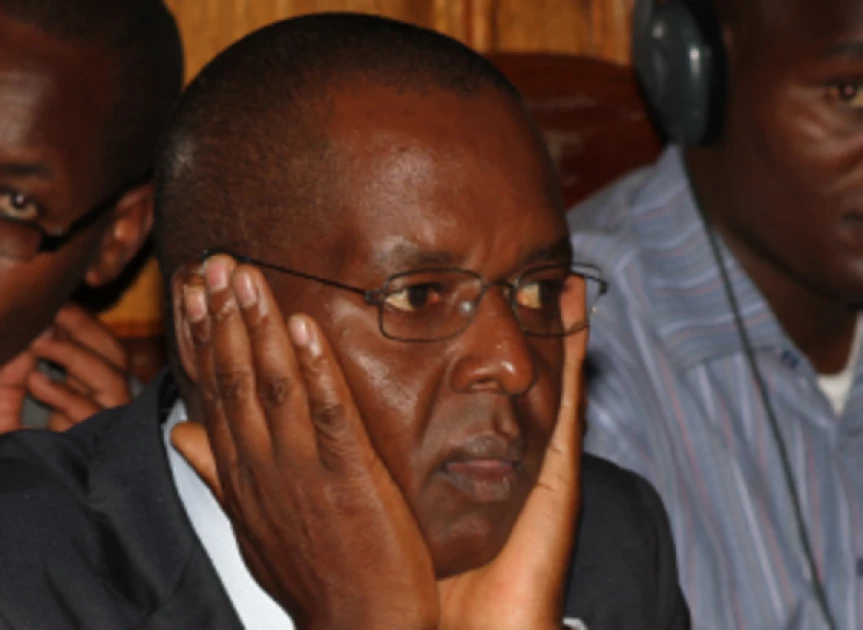Amos Kimunya’s political journey has been marked by both influence and controversy. He first served as Kenya’s Minister for Lands between 2003 and 2006 before moving to other senior positions in government.
Later, he became Finance Minister, a role he held until 2008 when he resigned following public outcry over the Grand Regency Hotel sale, which Parliament argued was undervalued at Ksh2.9 billion.
Although investigations later cleared him in that matter, the scandal left a dent in his career and reputation.
The corruption case now facing him traces back to 2005 when he was still at the Lands ministry. Prosecutors accuse him of abusing his office in the transfer of 25 acres of public land in Nyandarua County valued at Sh60 million.
Authorities allege that he facilitated the irregular allocation of the land to Midlands Limited, a private company.
Charges against him include fraudulent disposal of public property, failure to disclose private interests, and breach of trust as a public officer. Former land officials Lilian Njenga and Junghae Wainaina were also charged alongside him, making it a case that has dragged on for years.
The Ethics and Anti-Corruption Commission investigated the matter extensively, and in 2020 Kimunya was arrested and charged.
A magistrate later acquitted him in 2021, citing insufficient evidence, but the Director of Public Prosecutions appealed that decision. In 2022, the High Court overturned the acquittal and ordered him to defend himself, a ruling that the Court of Appeal upheld in early 2025. In February this year, the Milimani Anti-Corruption Court directed him to present his defense.
Throughout 2025, Kimunya has appeared in court several times. On July 14, he testified and denied any wrongdoing, stressing that he had even helped draft anti-fraud laws in 1991 and would not involve himself in fraudulent deals.
He argued that the prosecution had relied on rumors instead of evidence and insisted that he had not benefited personally from the transaction.
In August, he reiterated before the court that he did not commit fraud. He has cooperated with the court by attending hearings, securing bail at Sh700,000, and presenting his defense voluntarily.
The case has drawn public attention not only because of Kimunya’s past prominence in government but also because it highlights the long-standing issue of land-related corruption in Kenya.
Land disputes have historically fueled inequality and conflict in the country, making the case symbolic of broader governance challenges.
Kimunya’s trial underscores how difficult it can be to prosecute powerful figures. Legal delays, appeals, and questions over evidence have slowed the process. Public opinion remains divided, with some seeing the case as a step toward accountability, while others view it as politically motivated.
The hearings continue at the Milimani Anti-Corruption Court, and both sides remain firm in their arguments.



